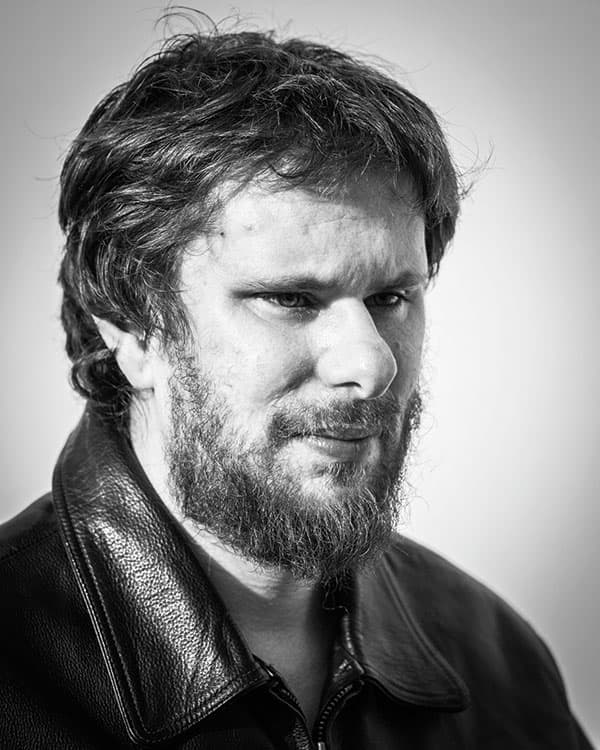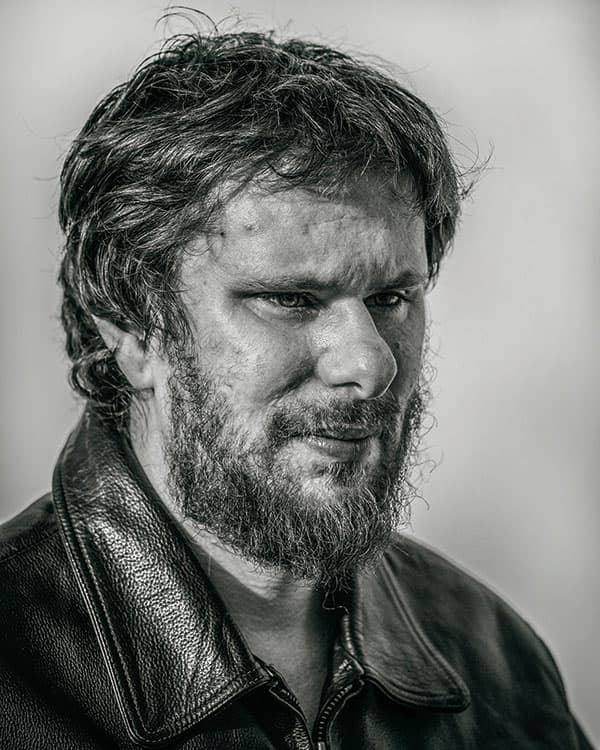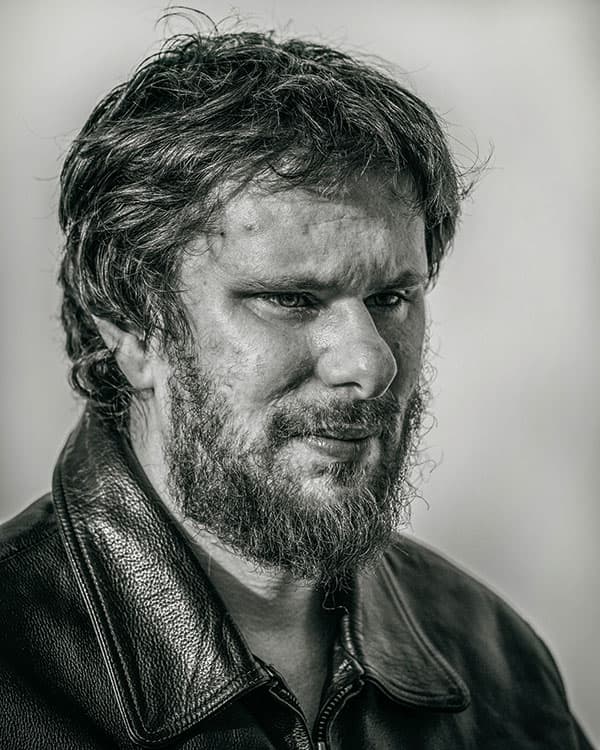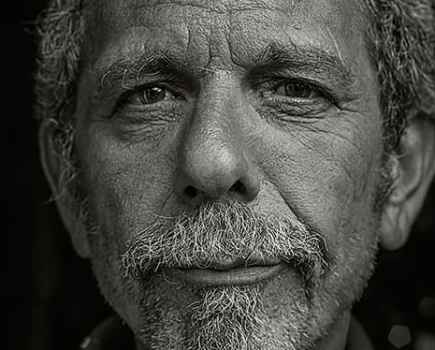Photo: Shades of Grey
Taken by: David Bechelet
Nikon D300, 105mm, 1/5000sec at f/3.5, ISO 400
We don’t often get portraits sent in for appraisal, so David gets a good mark to begin with. Initially, though, that flying start wasn’t going to be enough, because I picked this picture as an example of how not to do things. But once I changed the exposure, I realised what a powerful image it is. The reason I didn’t pick it as a winner to begin with is because I couldn’t see much detail in the sitter’s face – it is way to bright.

Before
It is common to get exposure wrong in portraits, and in this example it is easy to see why it happened. The man’s jacket is black, and his hair is dark, so the camera sees lots of darkness and wants to brighten things up. The result is that the skin is burned out and featureless. The solution is only about 1-stop’s worth of darker exposure, and a more moderate contrast applied in post-processing. I brought down the highlights and lifted the shadows, and then added a touch of cool tone to the darker areas.
When you can see the face, and appreciate the textures and the form of the man’s head and face, the picture becomes really rather good – it is interesting and engaging.

After: The original image was too bright. Portraits should be shot 1 stop darker than the camera recommends
I think for most portraits we need to expose at least 1/2 a stop darker than the camera recommends – and very often much more. In the past we used to bracket exposure and have the opportunity to be surprised by which frame we liked best. These days the promise of fixing it later prevents us from seeing the alternatives – and we often fix nothing later because we can’t see what is wrong.








